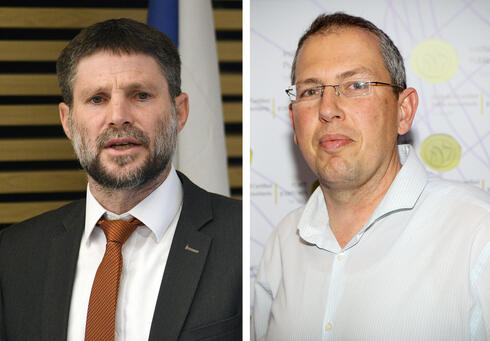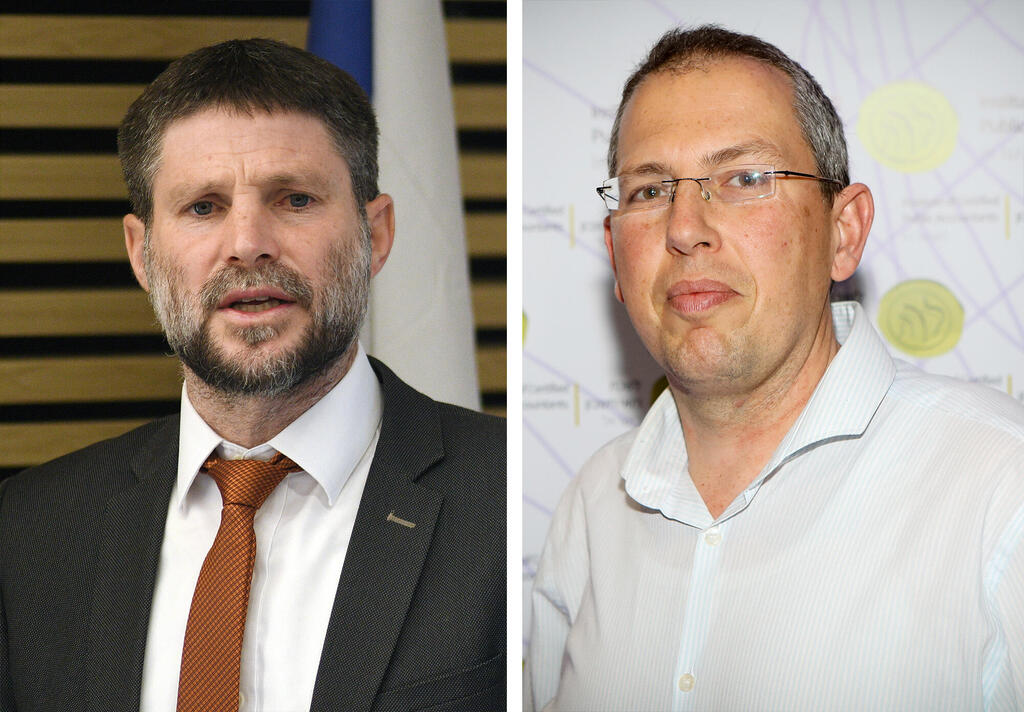
Tax Authority's crypto push falls short of expectations
Voluntary disclosure yields just NIS 30 million, far below projections.
The Tax Authority's pilot for voluntary disclosure of cryptocurrency related profits yielded only about NIS 30 million ($8 million), far below the initial expectation of hundreds of millions of shekels.
At the end of last December, the Tax Authority introduced a new procedure as part of a legal framework to collect taxes from owners of crypto assets on profits realized from these assets. The procedure was conducted over six months, concluding at the end of June.
1 View gallery


Tax Authority Director Shay Aharonovich (right) and Finance Minister Bezalel Smotrich
(Shlomi Yosef, Rafi Kotz)
The key innovation in this procedure was allowing taxpayers to report transactions directly to the Tax Authority, bypassing the banking system. Until now, many owners of crypto assets were unable to pay the tax because Israeli banks often refused to accept funds originating from crypto transactions. This reluctance was due to difficulties in tracking the source of the funds and concerns about potential violations of money laundering and terrorist financing laws.
This pilot was a precursor to a broader voluntary disclosure process dealing with capital gains in general, which is expected to generate between 2 and 3 billion shekels for the state. The procedure targets individuals newly wealthy from digital currency trading, Israelis who earned money abroad from properties and other capital, and citizens who have not reported rental income.
The procedure allows citizens who have not properly reported their income in recent years, or who have not reported it at all, to settle their tax obligations without penalty, provided the capital was accumulated legally and no prior examination or investigation has been conducted in their case.
The initiative received support from the Authority's director, Shay Aharonovich, and Finance Minister Bezalel Smotrich, particularly in light of the increased state deficit due to the current Gaza war. The last voluntary disclosure initiative was in 2019, when the state collected about NIS 153 million ($41 million), and more than NIS 3.5 billion during the procedure that was in effect from 2014 to 2016.
The Tax Authority told Calcalist that the voluntary disclosure procedure is still under discussion with the Attorney General, despite the fact that the outline was approved by the AG in May. It was expected to be implemented within a few weeks and, according to previous schedules, should have been published before last Passover.
Voluntary disclosure in the crypto field has become increasingly necessary in recent years. According to the Chief Economist, as of 2022, about 200,000 Israelis owned digital wallets used for trading digital currencies. "From our perspective, the procedure is primarily intended for crypto holders who have faced difficulties regarding disclosure in recent years," Aharonovich stated in May.
Digital trading is conducted through digital wallets that are held anonymously and identified by a digital address, distinct from regulated wallets listed on licensed crypto exchanges. These transactions are executed using blockchain technology, which ensures encryption and security.
According to the State Comptroller, "the unique and 'invisible' properties of virtual currencies facilitate economic crimes, making them a convenient tool for violating the Anti-Money Laundering Law. The use of these currencies does not pass through the regulated banking system, which is subject to identification and reporting obligations to enforcement authorities and the Authority for the Prohibition of Money Laundering."













